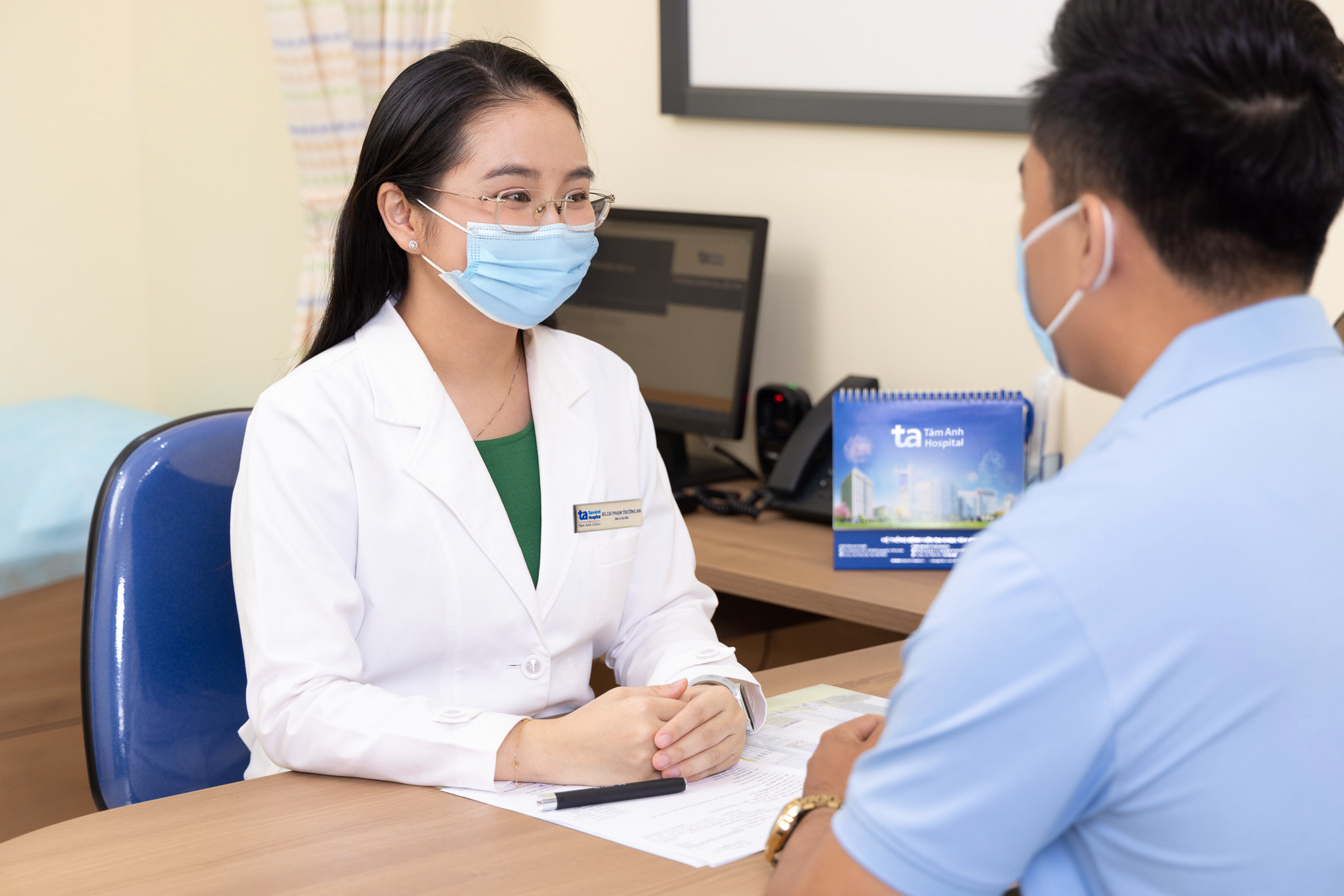Answer:
Lychees are a beloved summer fruit, appreciated for their sweet, fragrant flavor and nutritional value. However, those with oily or sensitive skin, or those currently experiencing breakouts, might notice small pimples or inflammatory acne, especially on the forehead, cheeks, and chin, after consuming a large quantity of lychees in a short period.
Lychees don't directly cause acne, but their high sugar content, including fructose, can cause a sudden spike in blood sugar levels when consumed in excess. This can stimulate the sebaceous glands, leading to clogged pores and breakouts.
Eating many lychees can contribute to increased skin sensitivity and breakouts, especially for those with oily skin or existing acne. However, it's not the sole cause of acne, which can also stem from hormonal changes, skincare habits, environmental factors, and more.
 |
Doctor An consults a patient. Illustrative photo: Tam Anh General Clinic, District 7 |
If you suspect that a food (like lychees or other high-sugar fruits) is exacerbating your acne, monitor your skin's reaction after consumption and adjust your intake accordingly. A healthy person can consume about 200-300g of lychees (about 8-10 fruits) daily. However, those with oily, acne-prone skin, or those with a tendency towards heatiness (a concept in Traditional Chinese Medicine), should limit their intake to 3-5 lychees per day, eaten in the morning or afternoon, and never on an empty stomach.
Avoid substituting lychees for main meals or eating them excessively for many consecutive days. This not only affects the skin but can also disrupt blood sugar levels, especially for individuals with a history of diabetes, obesity, or metabolic disorders. Drinking enough water (at least 1.5-2 liters daily) helps regulate body temperature, supports detoxification through urine and sweat glands, and reduces the risk of breakouts.
Those prone to heatiness and breakouts should combine lychees with cooling fruits like cucumber or dragon fruit, or drink cooling herbal teas. Maintain good skin hygiene, get enough sleep, and avoid spicy, oily, or greasy foods while consuming lychees. If you experience significant inflammatory acne, stop eating lychees and consult a dermatologist for appropriate treatment.
Pham Truong An, MSc, MD, Specialist Level I
Dermatology - Skin Aesthetics Unit
Tam Anh General Clinic, District 7
| Readers can submit questions about dermatology and skincare here for doctors to answer. |












